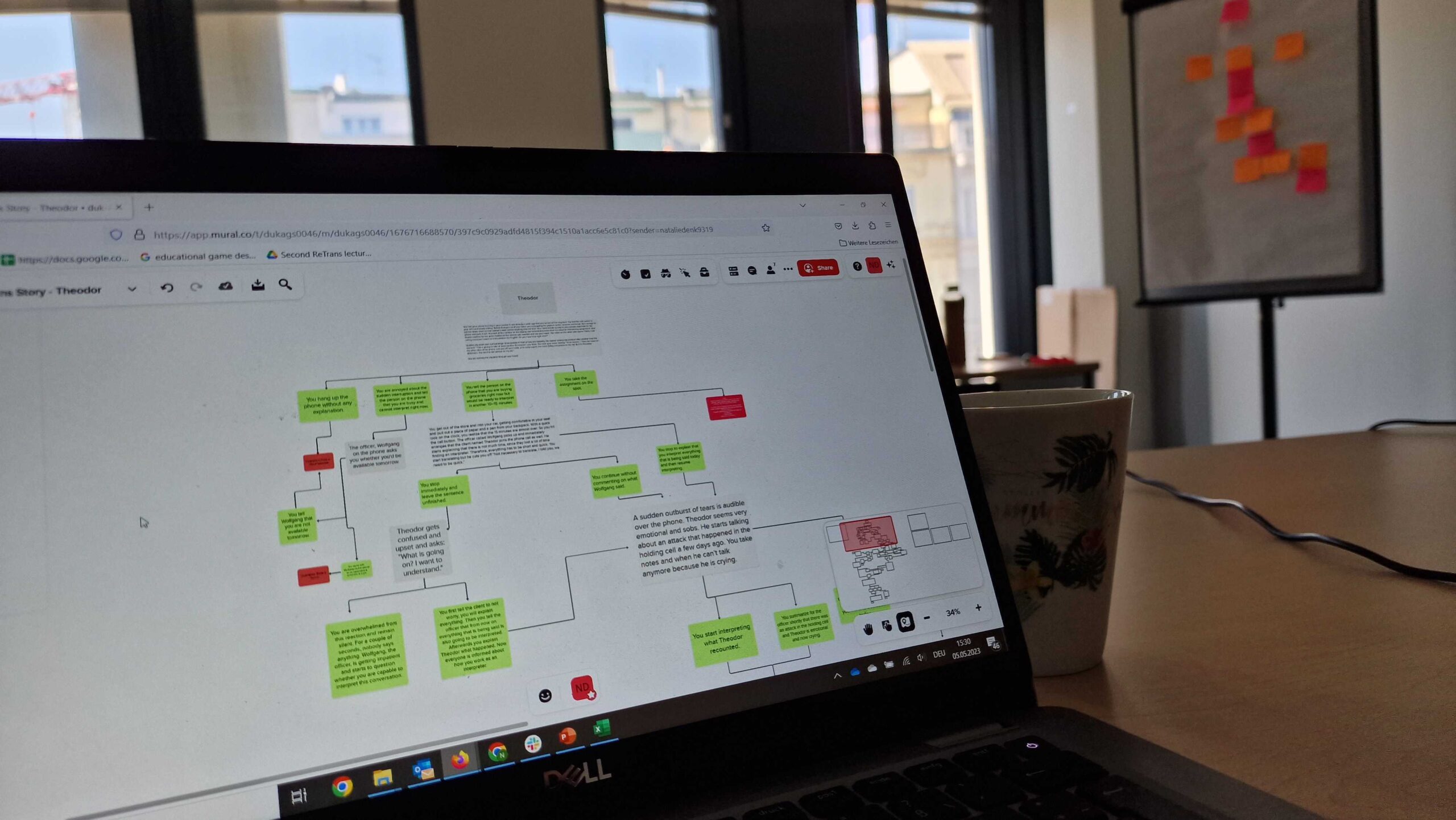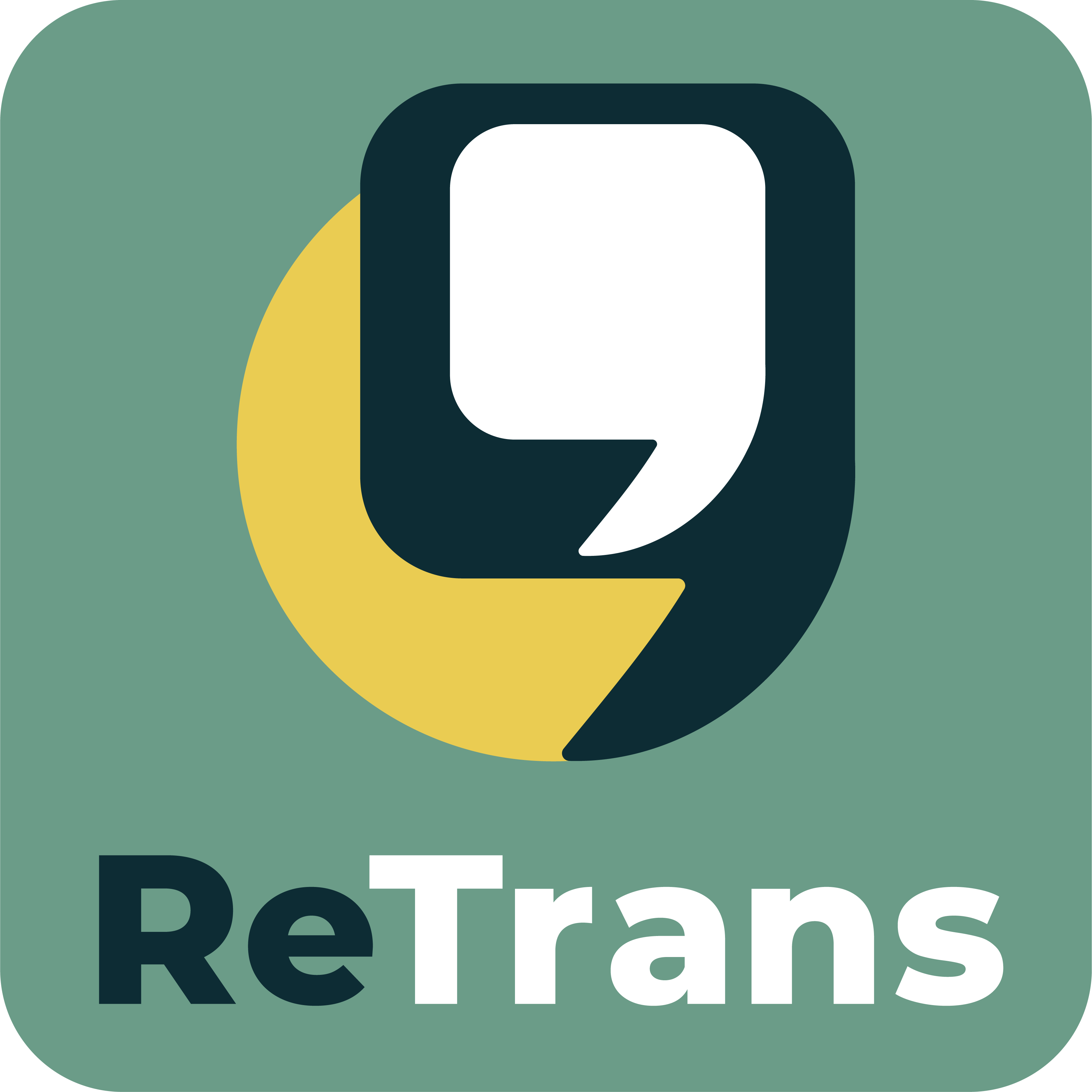When working with refugees, interpreters are often confronted with special challenges. In this context, there often is no simple “right” or “wrong”. Rather, ethical and moral decisions often influence the choices an interpreter makes. The course “Interpreting Studies meets Game Studies”, which took place in the summer term 2023 at the University of Vienna, was dedicated to these decision-making processes, which interpreters working in the context of refugee aid often face.
The aim of the course was to develop interactive interpreting stories based on realistic situations in Refugee Transit Zones. For this purpose, the project members of the ReTrans Project Maria Bernadette Zwischenberger & Harald Pasch (Centre for Translation Studies, University of Vienna) and Natalie Denk & Simon Wimmer (Center for Applied Games Studies, University for Continuing Education Krems) joined forces. Students from the field of translation studies as well as game research participated in the course.

Course Structure
We kickstarted the course with an online phase in which the students devoted themselves to readings from the field of interpreting studies as well as game studies. In addition, they received interview material from the ReTrans project where interviews with refugees, interpreters and key external players / stakeholders had been conducted. Furthermore, they were asked to test and reflect on two “ReTrans Stories” developed by the course instructors prior to the beginning of the course. In these interactive stories, the players take on the role of interpreters and are confronted with decisions that are prevalent in the context of interpreting for people fleeing countries of origins. One of the stories is about “Ali”, a young man from Afghanistan who is seeking asylum in Austria. In the other story you meet Anita who is searching for her mother and her son. Attending the ReTrans lecture by Yannick Wagner (Train of Hope) about the topic of crisis communication was also part of the introductory / preliminary online phase.

Fig 1.: Screenshot from the ReTrans Story “Ali”
“The ReTrans stories were also enlightening for several reasons: both stories were designed in such a way that you had to make a decision after almost every step. In some cases, the ‘right’ decision was fairly obvious, but in some others, rather less so, as one is tempted to already think ahead about the next step and how the current decision might possibly play out. At the end of the games, a coherent picture should emerge. The interesting thing was that one can reach this picture in different ways, which means that one does not always have to make the right decision immediately in order to finally solve the situation or that one can also reach the right conclusion via detours. However, one can also get a final picture where the tiles are very jumbled. This suggests that you didn’t find the best possible solution in the end or that you didn’t proceed correctly, but that the game is still over.”
Building on this newly acquired common ground of understanding, the most intensive phase of the course followed: a two-day workshop in which the students developed their own interactive stories. To achieve this goal, the students were given prompts and discussed the challenges of interpreting in the context of refugee aid involving escape and arrival situations, carried out creative writing exercises and tried out different storytelling techniques. On a technical level, the stories were realized with the tool Twine.
The elaboration of stories with different storylines and decision-making possibilities requires an intensive examination of the respective subject area. Hence, the process of creating the interactive stories became the goal and the didactic method of the workshop at the same time.
„Interpreting in the context of escape/arrival situations are characterized by the fact that they typically have no ‘end,’ as they involve the individual fates of people that do not dissolve when the interpreter goes home – even if they are never seen again.“

Fig 2.: Collaborative Storywriting (in progress) with the tool “Mural”

Fig 3.: Screenshot of the Story in “Twine”
Results
During many intensive but also creative hours of work, the students developed four interactive stories, each dealing with different ethical issues and burdensome challenges. The story about “Sara” deals with communication difficulties with medical staff and experiences of gender-based violence. “Timur” focuses on a homosexual male refugee and raises awareness for the gendered dimension in the interpreting process. “San” addresses the school enrolment of a refugee child and domestic violence between siblings. And “Nader, Yasin and Sami” presents the challenges of remote interpreting for a group of unaccompanied minors.
“We gave the players two options, one where they intervene and the game continues and the second where they decide to go home and not get involved. If you chose the latter, afterwards the person wonders what happened to the couple and if they still got help. We wanted to point out that as an interpreter you still deal with many issues later on and it is often difficult to finish your work. Especially when you interpret in medical contexts or also when working with refugees. These things are very close to you and you deal with them even after an assignment.”
What comes next?
All interactive stories developed in the ReTrans project will soon be available on this website and can be used as training material. Stay tuned!
Author: Natalie Denk (Center for Applied Game Studies, University for Continuing Education Krems)
